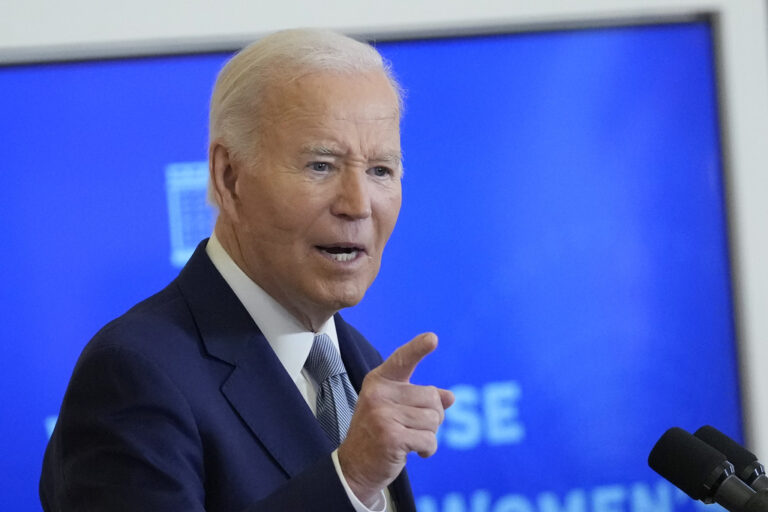New York State’s $150-billion public pension fund has sued Qualcomm Inc., seeking to force the chip maker to reveal its political spending, according to the state comptroller.
The suit was filed late on Wednesday in Delaware Court of Chancery, after Qualcomm refused the request by the New York State Common Retirement Fund — a Qualcomm shareholder — to inspect records detailing the use of corporate resources for political activities, said state comptroller Thomas DiNapoli, who oversees the fund.
“Without disclosure, there is no way to know whether corporate funds are being used in ways that go against shareholder interests,” DiNapoli, a Democrat who is up for re-election in 2014, said in a statement.
The suit opens a new front in the fight over corporate political spending, which has risen dramatically since the U.S. Supreme Court’s 2010 ruling in Citizens United.
That decision lifted restrictions on corporate political spending and led in part to an unprecedented $6 billion of spending on the recently held U.S. elections.
While other companies have agreed to increase their disclosure of political spending, Qualcomm has not, the lawsuit said.
A spokeswoman for San Diego, California-based Qualcomm said the company had no immediate comment.
The New York State fund, the third-biggest public pension plan in the United States, owns more than 6.1 million Qualcomm shares, which are valued at about $396 million, based on Thursday’s share price. The stake represents 0.36 percent of outstanding Qualcomm shares and makes the fund the company’s 52nd largest shareholder, according to Thomson Reuters data.
New York is Qualcomm’s largest U.S. public pension fund shareholder. The California Public Employees Retirement System, the largest U.S. pension fund with $241 billion in assets, owns about 4.3 million Qualcomm shares.
Since at least August 2012, the pension fund has repeatedly attempted to get the information from Qualcomm, but the company has refused to divulge it, the suit claimed.
New York’s pension fund is “concerned that it cannot determine whether senior executives and directors of Qualcomm are spending corporate resources to support their favored political candidates” or on causes that aren’t focused on boosting shareholder value, the complaint said.
Other sources show that in 2012, Qualcomm spent more than $4.7 million on federal lobbying efforts, according to the complaint.
WITH NOVEL APPROACH, SUCCESS UNCERTAIN
The suit is believed to be the first in Delaware, where Qualcomm and most major U.S. companies are incorporated, to use the state’s books-and-records law to compel political spending disclosures, a DiNapoli spokesman said.
As an institutional investor, the fund could attempt to remove directors from Qualcomm’s board or sue board members if they were found to have wasted assets, the complaint said.
DiNapoli’s office previously asked Qualcomm to provide documents that identified the date, recipient and amount of each political expenditure the company has made since Jan. 21, 2010, as well as documents detailing the company’s expenses for trade associations and other tax-exempt groups.
DiNapoli’s office also asked for minutes of board meetings during which political causes or candidates were discussed.
The case would be tough to win if New York State claims that shareholders are entitled broadly to all documentation about political spending, according to Larry Hamermesh, a professor at Widener University School of Law in Wilmington, Delaware.
“I can’t see a court saying that is correct any more than what a company spends on business in China are a legitimate subject for shareholder inspections,” he said.
Hamermesh said investors might gain access if they take a targeted approach such as seeking contributions to specific races or contributions approved by the CEO.
Charles Elson, director of the Weinberg Center for Corporate Governance at the University of Delaware, said that if DiNapoli’s legal team cannot point to evidence — such as news reports that raised suspicions about the company’s spending — the lawsuit might not survive scrutiny by a judge who sees it as a fishing expedition,
But if it passes muster, the suit could become a model for other shareholders, Elson said.
DiNapoli’s complaint said that studies indicate that corporate political spending is, in general, negatively correlated with enterprise value and can indicate widespread deficiencies in corporate governance.
Political donations can also backfire on corporations. For instance, Target Corp. in 2010 donated $150,000 to a political group that supported Minnesota gubernatorial candidate Tom Emmer, who opposed same-sex marriage. The contribution sparked backlash and led Target to later apologize, the suit noted.
(Reuters)










